For the first time on July 16th 1945, a light dawned on mankind, bringing forth the darkest of all sides of humanity. One man’s brilliance conjured up a fireball. An American prometheus who once only wanted to explore what happens to stars after they die. The bigger the celestial body, the greater its demise. Instead, he first became the father of the atomic bomb, then an enemy of the state, and afterwards a celebrated hero. Christopher Nolan has now created a film with “Oppenheimer” that, just like its namesake himself, will be remembered and whose aftershock will be so gigantic, that golden statues will rain down from the sky in Hollywood.
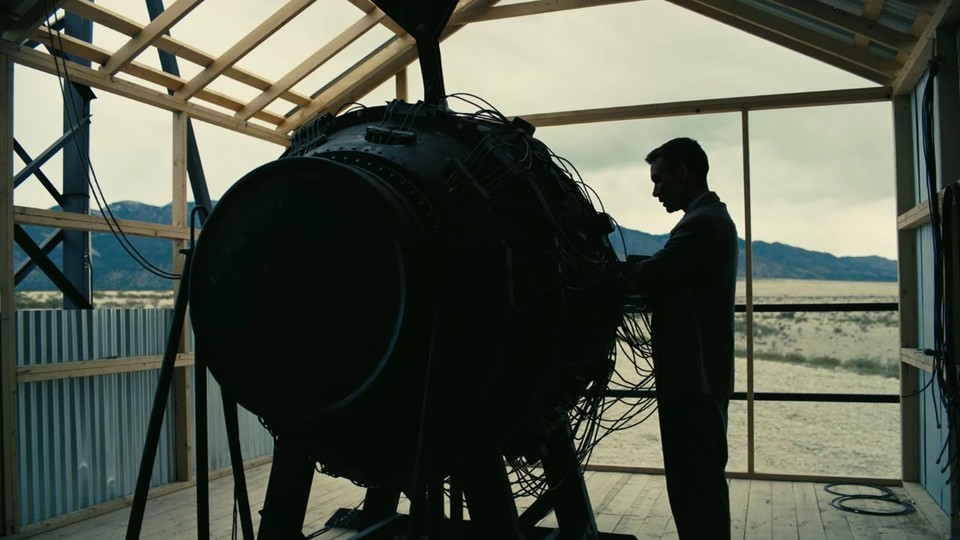
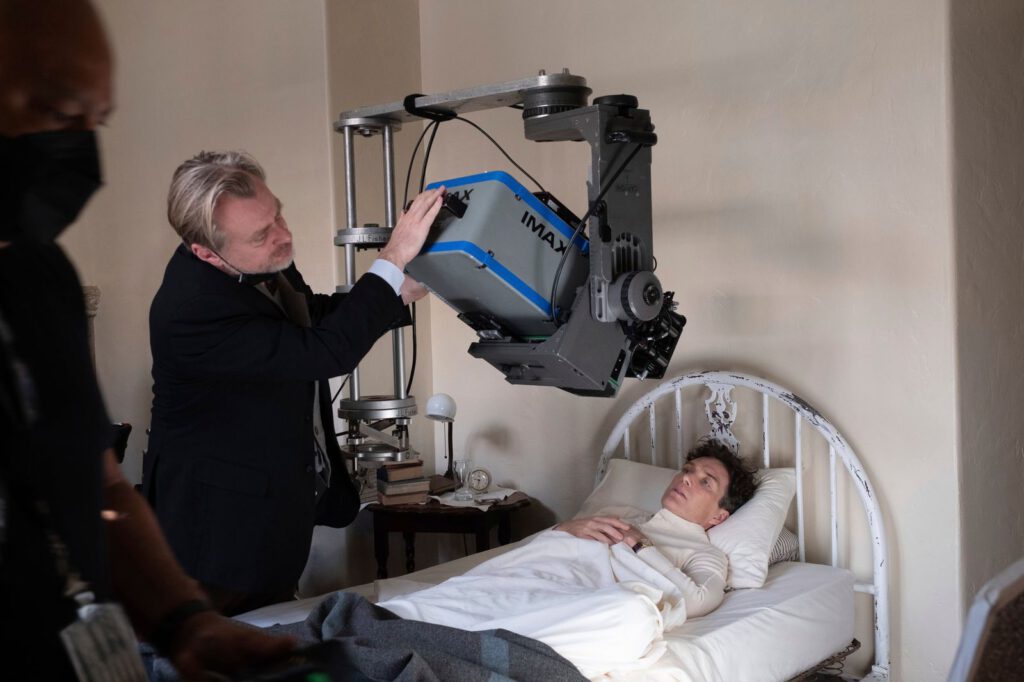
Cinema is trying to recover – both from what has happened in recent years and the rise of streaming services. Few films have managed to strike a chord with both the times and the audience. Christopher Nolan already tried in 2020 with “Tenet”: However, something was missing that was explosive and thrilling enough to draw people into the cinemas and give them something they could also understand and not just have to feel. Now, not only has ‘Barbenheimer’s’ campaign benefited him, celebrating the simultaneous release of Greta Gerwig’s big studio debut for the “Barbie” doll and his first Universal Pictures collaboration “Oppenheimer”, but also the casting of the lead role came into play: his secret weapon and long-term collaborator Cillian Murphy now gets to play a primary character for him for the first time, and the role he embodies brings with it a lot of responsibility and daring.
“Oppenheimer” contains many components that set it apart from the typical Nolan film: In addition to a large ensemble cast, which consists almost entirely of famous faces – but uses many for the first time and manages to tickle the best out of them, the script is rendered in an unconventional way by a first-person narrator (Oppenheimer himself). And even unusual is the genre that he chose: a biopic. In terms of mise-en-scène, he takes his fans back to his beginnings: ironic as it may sound for a film about the atomic bomb, Nolan’s work is more grounded than examples from the last decade and strongly reminiscent of “Insomnia” or “The Prestige”.
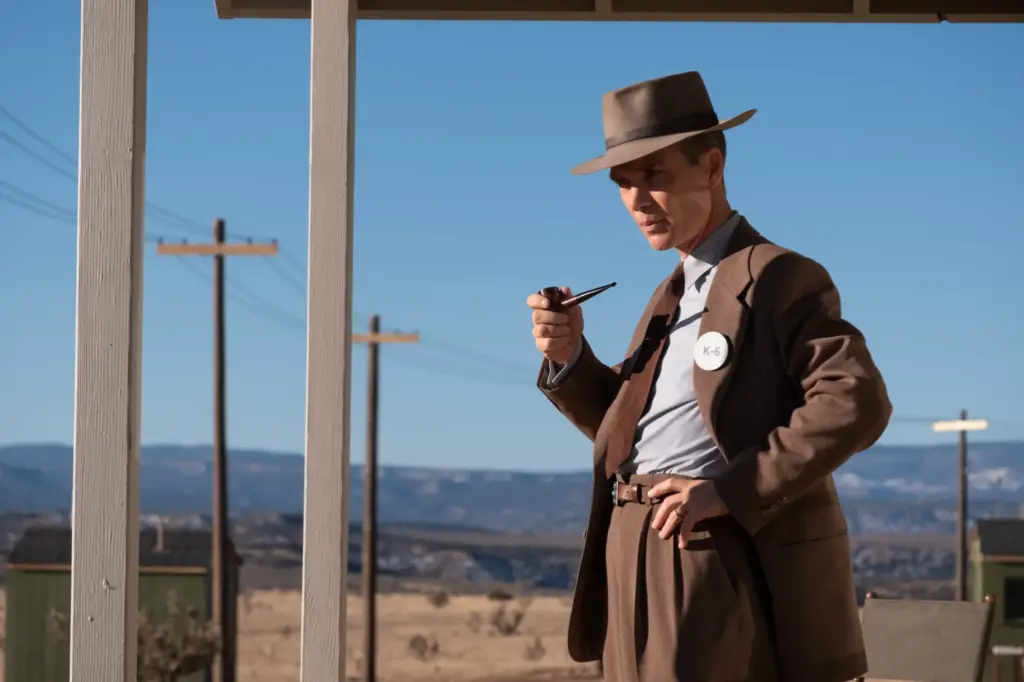
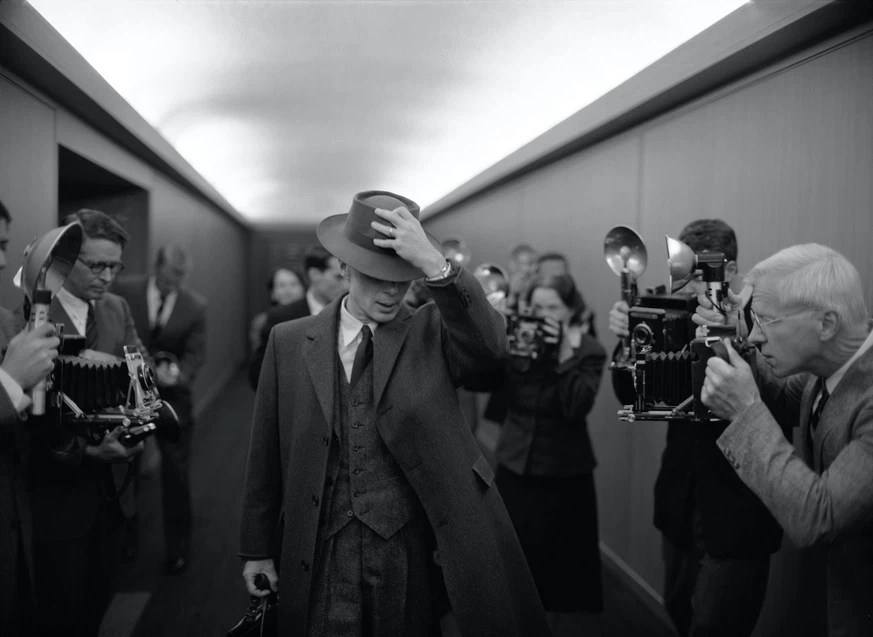
Long-term critics of the director will find a ready-made meal here – pretty much all the usual components can be chalked up: The unconventional time levels – which he already played to his advantage in “Dunkirk” and here also only benefit the narrative structure, but stretch out the plot; the sound mixing; as well as the immature female characters, who often have no more than one character trait and appear now and then in the picture and then disappear again. So is Nolan just trying to make us think that one of his films passes the Bechdel test here for a change, or do Kitty Oppenheimer and Jean Tatlock actually have larger supporting roles?
Yes and no. While Emily Blunt gets an incredibly strong scene in the third act that almost makes up for the reduction of her character, she is simply thrown into the plot and within seconds is in love with J. Robert Oppenheimer and gives up her previous marriage for him – you never feel this connection, what the focus is more on is her penchant for alcohol and reduces her to just being a mother and calling her husband a coward. Pugh’s character on the other hand is reduced to a minimum, even though she was not only the indirect inspiration and namesake of the Trinity test, but also a major influence on J. Robert Oppenheimer himself. The convinced communist was much more than just a simple affair and one of the many sexual partners of ‘Oppy’, as he is affectionately called by everyone – but is that really important and do we need this information about his private life, when it is actually about a greater cause, the perhaps ‘most important’ of all?
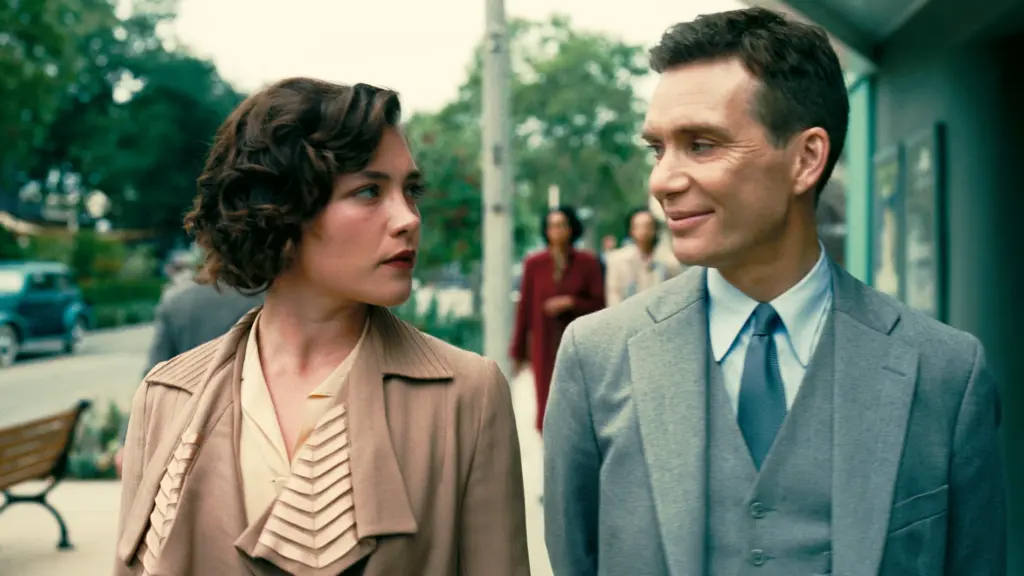

So let’s put aside that he was a womanizer. Or a ‘modest’ physicist. The viewer also sympathizes with this character not because he was an unstable, pretentious, self-absorbed neurotic, but because his actions and intellect, shaped the world as we know it today. Without Oppenheimer, we would not be living in his post-credit scene. His pain, guilt and empathy are not why World War II ended and the Hiroshima and Nagasaki bombs were dropped, but they are fundamental to why we watch a movie about the man who has become death, the destroyer of worlds. And can understand the helplessness and emptiness behind his eyes. Oppenheimer was a complicated man with an even greater burden, but it is precisely such a morally gray character that is needed to tell a story that is still significant.
And in doing so, for the first time in his career, Nolan has accomplished something he has always failed to do: He hasn’t just made up a story in which the protagonist sinks into dream worlds, saves Gotham City, or is an astronaut who discovers a rip in the fabric of space-time – he takes a fundamental part of our history that still affects us as much today as it did 80 years ago and confronts us with the evil that is inside us. What has always been in humans and will not leave our DNA. The score by Ludwig Göransson, career best performances by Cillian Murphy and Robert Downey Jr. may just be the last fuse for commercial success, but the praise for the atomic bomb film and the designation “masterpiece” do not come from anywhere.
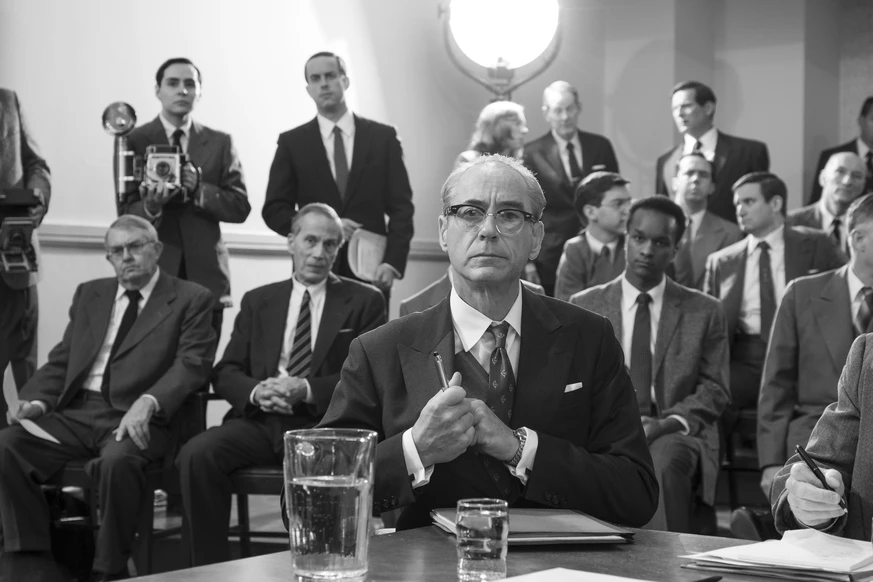
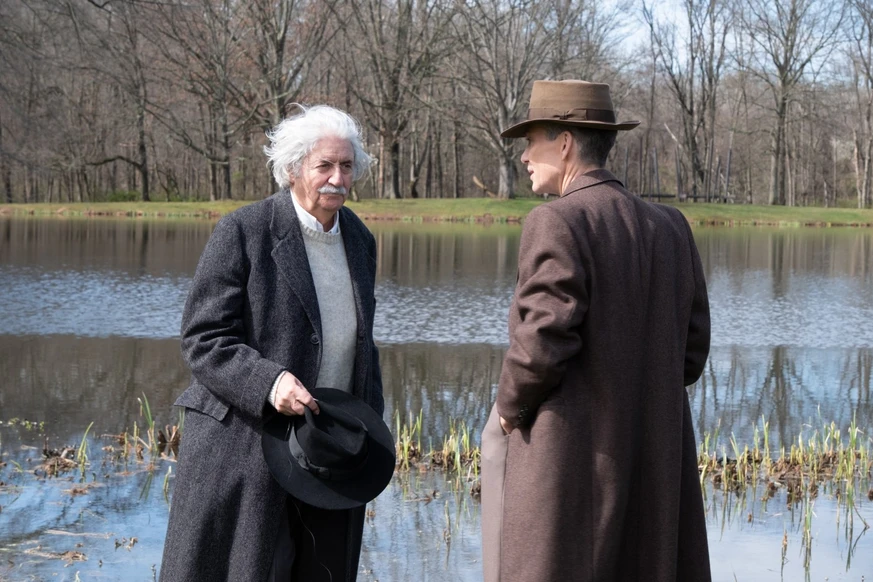
“Oppenheimer” is, above all, about the tragedy of constantly looking the other way while (metaphorical) fireballs are constantly going off every day. Things that are hard to understand – both for metaphysics and for humanity itself, and raise the question of whether we should ever have so much power. What is left behind is a blast wave – followed by a black shadow. No matter what one’s personal feelings, undeniably one of arguably the most important films of our time. And it’s being showered with awards. Just as the real Oppenheimer won a medal of merit, the fictional version of himself and his chronicle will go down in history with trophies as well.

